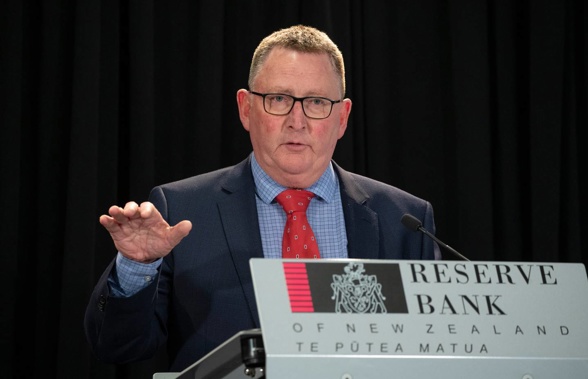
In hindsight, the Reserve Bank should have started lifting interest rates sooner and cut back on its programme of quantitative easing earlier to head off inflation, a new report says.
The review found earlier tightening of monetary policy could have “lessened inflation at the margins”.
But the internal review released this morning said the Covid response “was consistent with the data available at the time” and “worst-case economic scenarios were avoided”.
The Reserve Bank has faced criticism from opposition parties for its handling of the pandemic and related crises.
Both National and Act have argued that assessment of the monetary policy response required an independent inquiry.
The review - which covered monetary policy decisions since 2017 - included reports from two independent international experts.
Reserve Bank Governor Adrian Orr said: “the period reviewed was uniquely challenging, with the global economy responding to globalisation and more lately fragmentation, technological change, declining global interest rates, plus the Covid-19 pandemic and war in Ukraine.”
Orr on Monday was re-appointed to the role for another five-year term.
National Party finance spokeswoman Nicola Willis said the party was “appalled” by the re-appointment.
Independent experts assessing the review were Warwick McKibbin, a Professor at the Australian National University, and Lawrence Schembri, former Deputy Governor of the Bank of Canada.
- Former RBNZ economist lays into Adrian Orr's reappointment as Reserve Bank Governor
- RBNZ's dual mandate receives frosty reception after consultation on monetary policy remit
The review found nine areas for improvement.
These included developing a broader insight into the impacts of supply shocks on inflation, developing new sources of data for economic monitoring and refining measures of maximum sustainable employment.
“In the early days of the pandemic, the Committee eased monetary policy in the knowledge that there could be some ‘policy regret’ in the future, depending on how the economy evolved,” the report said.
“The downside risks to the economy were judged to outweigh the upside risks. This approach was in line with many peer central banks. In hindsight, towards the end of 2020, this approach appeared to be warranted, as worst-case scenarios were avoided.”
But in hindsight, monetary policy could have been tightened earlier in 2021, the report said.
“The Committee could have supported an earlier tightening of financial conditions through explicitly endorsing a lower volume of weekly asset purchases, or reducing the overall size of the LSAP (Large Scale Asset Purchase) programme, or halting LSAP earlier.”
LSAP was otherwise known as quantitative easing or, more colloquially, money printing.
“In hindsight, the Committee could have raised the OCR earlier,” the report found.
“The Committee was relatively cautious in tightening policy given the significant uncertainty around the outlook for inflation, employment and growth,” it added.
“This cautious approach was in line with many other central banks over this period. Importantly, however, beginning the monetary policy tightening earlier in 2021 would not have fully offset the strong inflationary impulse stemming from Russia’s invasion of Ukraine or the various climate-related supply shocks.”
Take your Radio, Podcasts and Music with you









